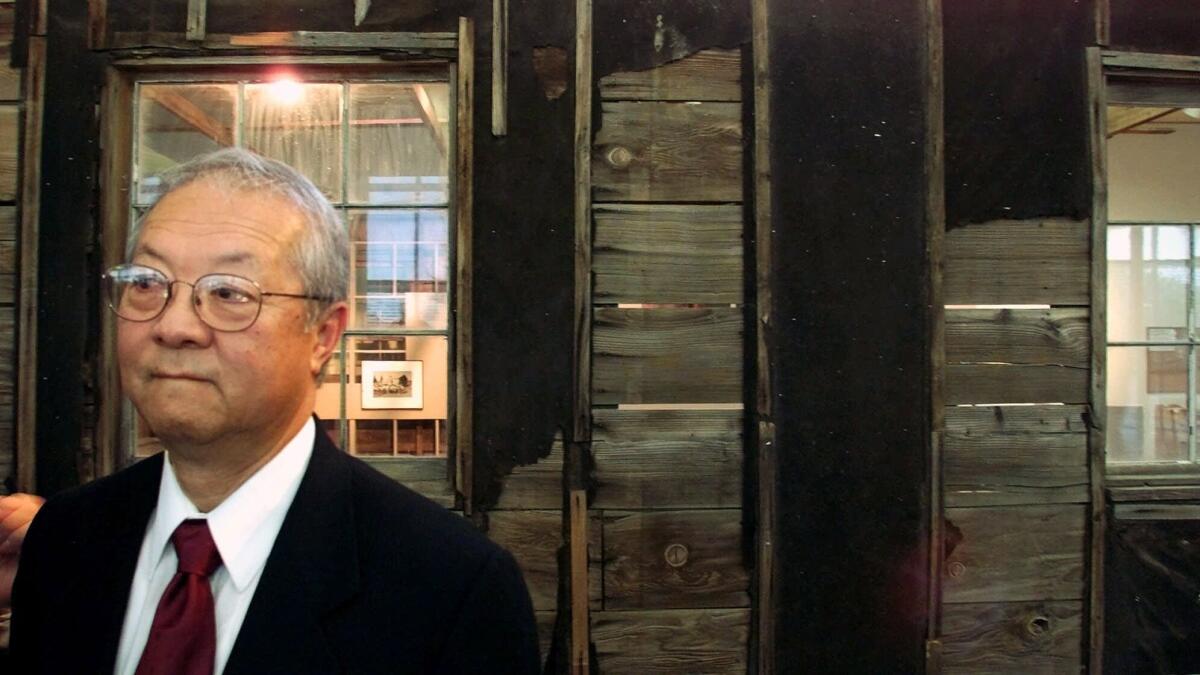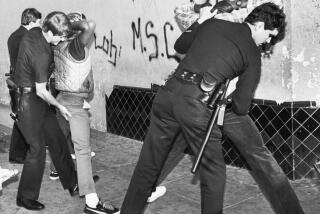Op-Ed: His family’s internment earned apologies from a human rights commission. Will the U.S. government respond?

It is a shocking episode from World War II that the U.S. government refuses to take responsibility for. But this week, Art Shibayama finally got to make his case for a just ending to the tragedy that haunts him more than seven decades later.
Shibayama was 13 when he was wrenched from his home in Lima, Peru, placed on a U.S. troop ship with his family and shipped to a prison camp in Texas where he spent more than two years under armed guard.
After hearing his story this week, the members of the Inter-American Commission on Human Rights offered their personal apologies and a promise to seek the “entire truth” about the covert U.S. program, which I described in a Los Angeles Times op-ed Monday. More than 2,200 Japanese Latin Americans, including the Shibayamas, were shipped to the United States to trade for U.S. civilians imprisoned by the Japanese.
“You were brought here from my country,” Commission President Francisco José Eguiguren Praeli, a former Peruvian Justice minister, told the 86-year-old retired gas station owner from San Jose. “I had nothing to do with this, but I would like to express my apologies.”
Shibayama, who appeared with his daughter, Bekki, told the commission he had sought their help “so this kind of thing wouldn’t happen again.” Afterward, he said it felt “good” to have the commission’s support, describing it as “the best chance we’ve had so far.”
The United States refused to participate in the commission’s hearings in Washington, drawing criticism from a commission member and the American Civil Liberties Union. The ACLU called the “unprecedented” no-show a “worrying sign” that the Trump administration not only was “launching an assault on human rights at home” but also was “weakening” the post-war international institutions set up to “hold abusive governments accountable.”
The Roosevelt administration orchestrated the World War II program as a way to secure America’s southern border. But none of the Japanese Latin Americans who lost their homes and businesses were convicted of espionage. And thousands of innocent Germans and Italians also were caught in the U.S. security net.
Commissioner Margarette May Macaulay described the U.S. actions — which included taking away the Shibayamas’ citizenship papers and passports before admitting them to the U.S. as “illegal aliens” — as a “clear, fraudulent act.”
Shibayama’s grandparents were among more than 800 Japanese Latin Americans traded for American civilians. A lawyer helped his family stay in the United States, and he finally got U.S. citizenship in 1970.
Shibayama, who served in the U.S. Army during the Korean War, and two brothers filed a petition with the commission in 2003 after they were repeatedly rejected from various U.S. courts. They are seeking reparations and a formal apology from the United States, the removal of the words “illegal alien” from their files and an assurance that this wartime tragedy will be included in American history books.
The commission, an arm of the Organization of American States, cannot penalize its members but issues findings, acts as a mediator and refers cases to the Inter-American Court of Human Rights.
Evelyn Iritani, a former Los Angeles Times reporter, is writing a book on the U.S.-Japan hostage exchanges in World War II.
Follow the Opinion section on Twitter @latimesopinionand Facebook
More to Read
A cure for the common opinion
Get thought-provoking perspectives with our weekly newsletter.
You may occasionally receive promotional content from the Los Angeles Times.






